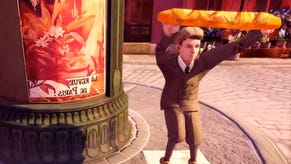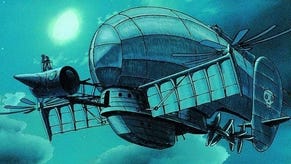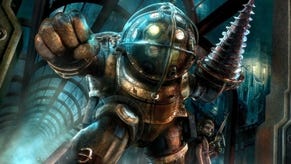BioShock Infinite
Friends in high places.
Infinite introduces another layer to this storytelling through its use of objects and other people in the world.
"You saw the guy getting beat up outside the store," Levine notes. "We have a system where the AI say to each other, 'Hey, I wanna beat someone up! Is anyone available to get beat up?' And another AI will say, 'Oh I'm available,' and this stuff happens dynamically. But if they're in combat or something else is occurring, that won't happen yet. We have this very opportunistic system that lets us create that kind of content if the opportunity arises."
Another part of that system relates to Elizabeth. Freed from her confinement, she is full of energy and excitement.
Elizabeth herself is different to the other clever things BioShock Infinite is doing.
BioShock has been fascinating so far for lots of reasons - for me the main one is that they explore interesting ideas under cover of entertainment - but while there has been much to admire and to ponder and to question, we have really loved the game as a whole rather than an individual within it.
In Elizabeth, and in her childlike joy and enthusiasm that's painted so vividly against the jaded backdrop of Booker's bleaker worldview, BioShock now has a heart to go with its brain.
"One of the joys is watching Elizabeth discover herself, because she has no idea who she is," says Levine. "I think watching her discovery is fascinating and watching her powers is fascinating."
Still, it wouldn't be very interesting if you were forced to sit and watch her discover herself. It has to seem spontaneous. To this end, the internal game logic has a schedule of incidental things Elizabeth can do in the world that develop her character and her relationship with Booker.
We see her put on a Lincoln hat and playfully start reciting the Gettysburg Address, for instance, but you don't have to see that happen in that one spot - if you're doing something else in the room, it can happen when she finds another hat later. And the game knows to ration those events across a level, too, rather than jamming them all into one sequence or doing them at an inappropriate time.
It's all part of the same internal consistency that makes it easy for us to make-believe that a city can fly. It's still a willing suspension of disbelief, but it's much easier to summon the will in environments so rich with forethought as those you visit in BioShock Infinite.








